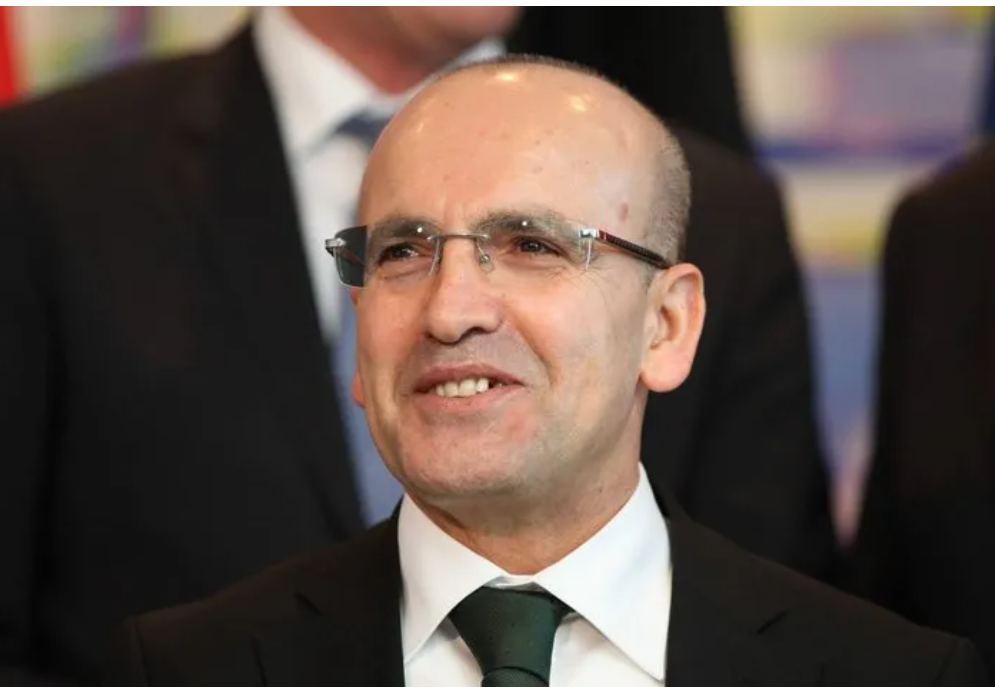Turkey’s economy czar Mehmet Simsek had s shaky start to his second career stint, as January CPI soared over 65%, while her teammate Central Bank governor Gaye Erkan was sacked or chose to resign under accusations of nepotism and mobbing by her father, who allegedly acted as a Bank executive.
With critical elections in less than two months, business community and investors probably understand why Simsek’s hands are tied behind his back, but the first will not increase capex, while the latter will not sink money into Turkey’s turbulent financial markets. This presents a dilemma for Simsek who needs fixed investment to increase domestic supply to alleviate demand-side inflation pressures; and tons of hot money to bolster Central Bank reserves.
Financial Times editorial board argues that “The abrupt resignation of Turkey’s central bank governor this month might have been expected to cause investor jitters that the country’s short-lived experiment with monetary orthodoxy was over. That the market response turned out to be so muted shows that the real power in the country’s economic leadership now rests with the finance minister, Mehmet Şimşek”.
Can he avoid the Catch-22 fate presented him with?
FT Editorial Board suggests:
Unlike previous defenestrations, though, Erkan’s departure made barely a ripple in markets. In part that is because her replacement and former deputy, Fatih Karahan, is himself no slouch, with a background spanning the University of Pennsylvania, the New York Federal Reserve and Amazon. Analysts such as those at Goldman Sachs described him as “respected” and noted that Erkan’s exit was not rooted in policy disagreements. That points to potential continuity.
But the real key to the calm tone in markets is the reassuring presence of Şimşek, the former Merrill Lynch banker who left an 11-year stint in top economic positions in Erdoğan’s government under fraught circumstances in 2018 and was brought back in to the fold after last year’s elections.
Şimşek knows that markets matter for Turkey, which needs foreign investors to buy its bonds. The Turkish media’s hostile depiction of sinister and conspiratorial foreign investors has, thankfully, melted away. He also knows citizens suffer from yet more price rises on imported goods when the currency crumbles. He recognises the need for continuity in economic policy and stability, particularly in inflation.
The central bank is nowhere close to achieving this yet — annual inflation is still running at close to 65 per cent. Still, fund managers trust Şimşek to lead this job and, crucially, to keep Erdoğan on side, and have proven willing to dip back into Turkish assets for the first time in years since his reappointment. Karahan is Şimşek’s pick for the central bank, and for Wall Street analysts and investors, that is pedigree enough.
Today’s situation is a vast improvement on that of five years ago. But it is still not ideal. The weight on Şimşek’s shoulders is substantial, and it is unhealthy for investors to run such intense key-man risk. A broader set of well-respected figures in the upper echelons of Turkey’s economic machinery would be highly desirable as evidence that Erdogan’s conversion to orthodoxy is deep-rooted. For now, mutual mistrust between the president and western fund managers still simmers. Investors are placing a lot of faith in Şimşek as the crucial whisperer between them.
Follow our English language YouTube videos @ REAL TURKEY: https://www.youtube.com/channel/UCKpFJB4GFiNkhmpVZQ_d9Rg
And content at Twitter: @AtillaEng
Facebook: Real Turkey Channel: https://www.facebook.com/realturkeychannel/
